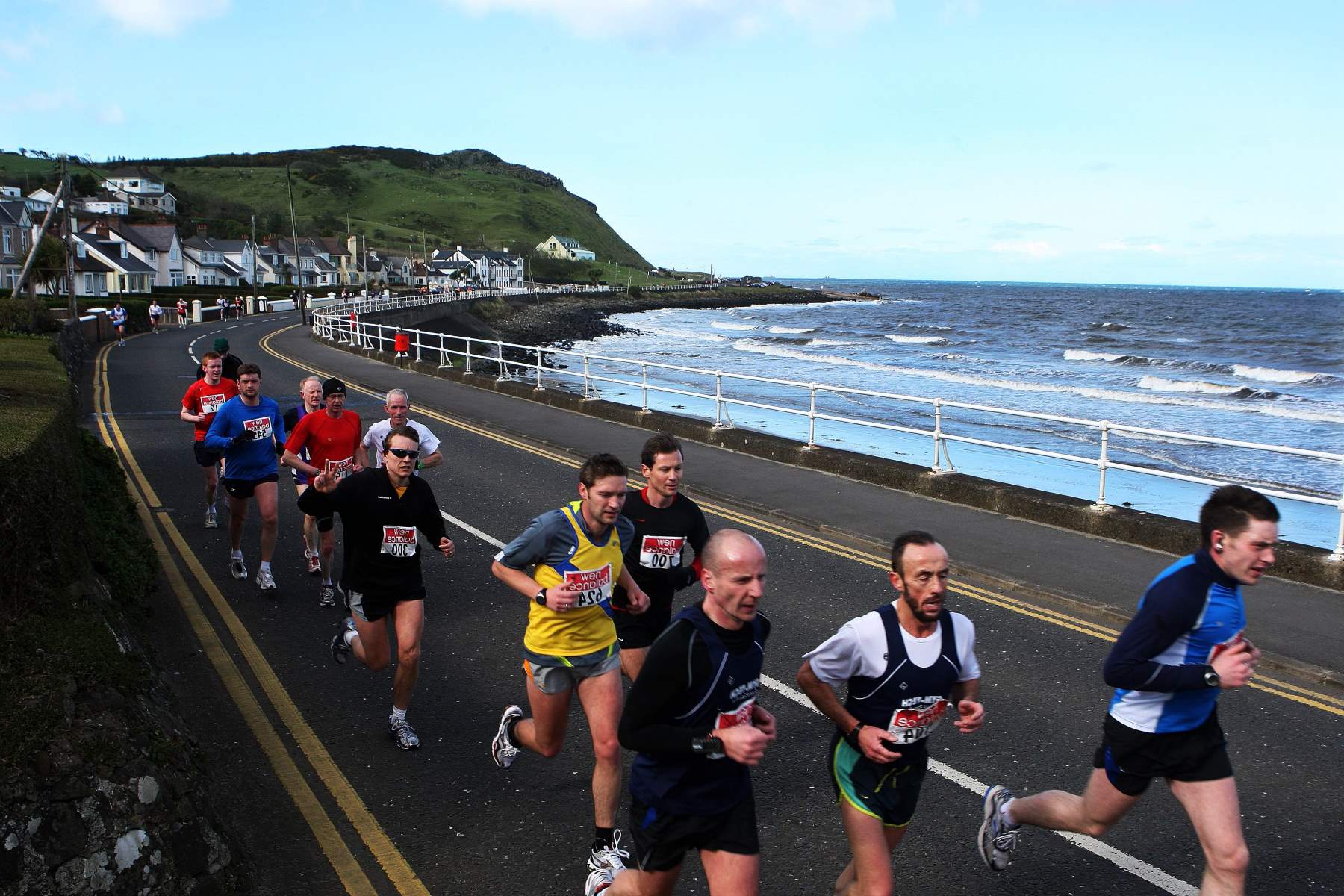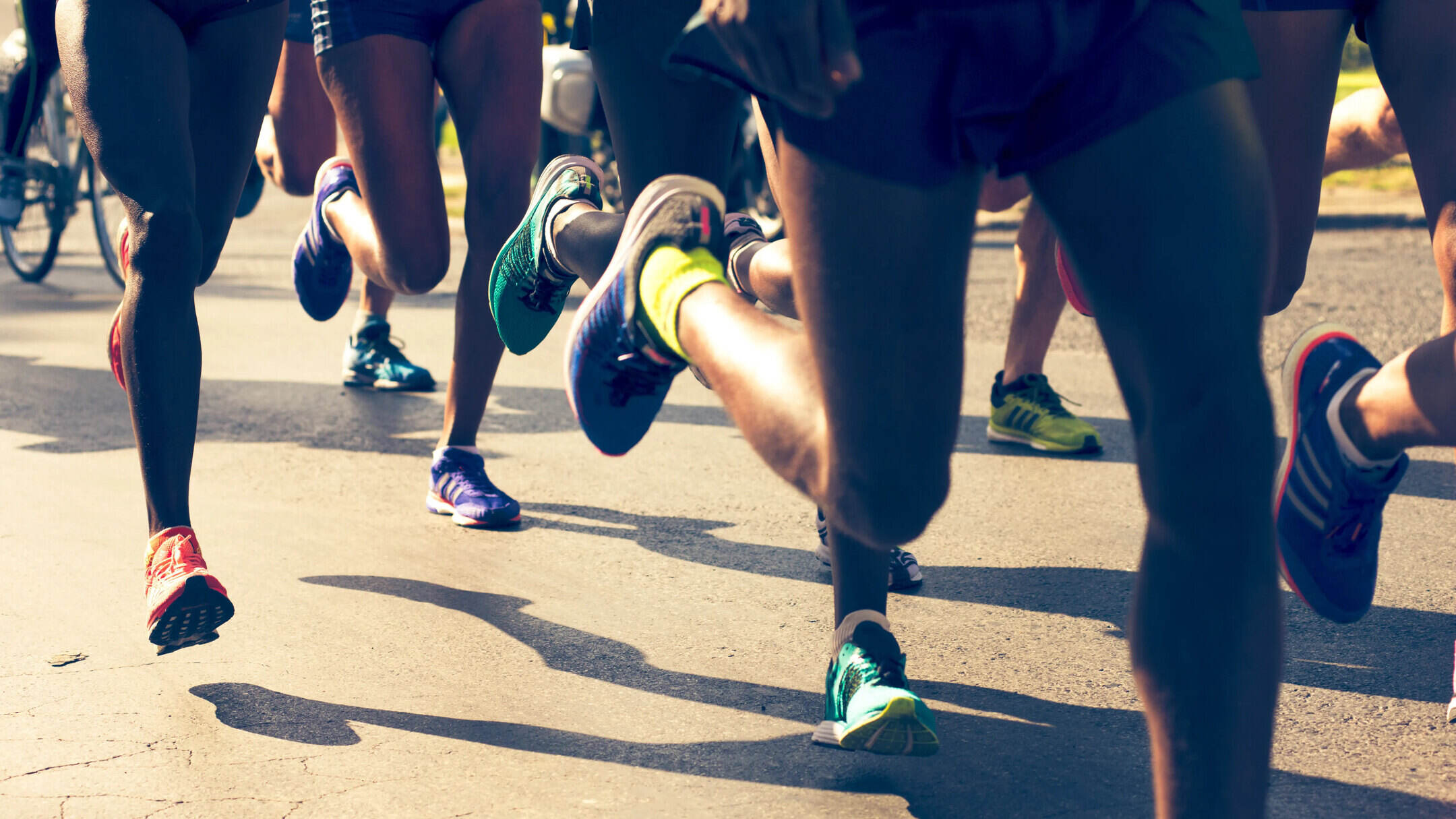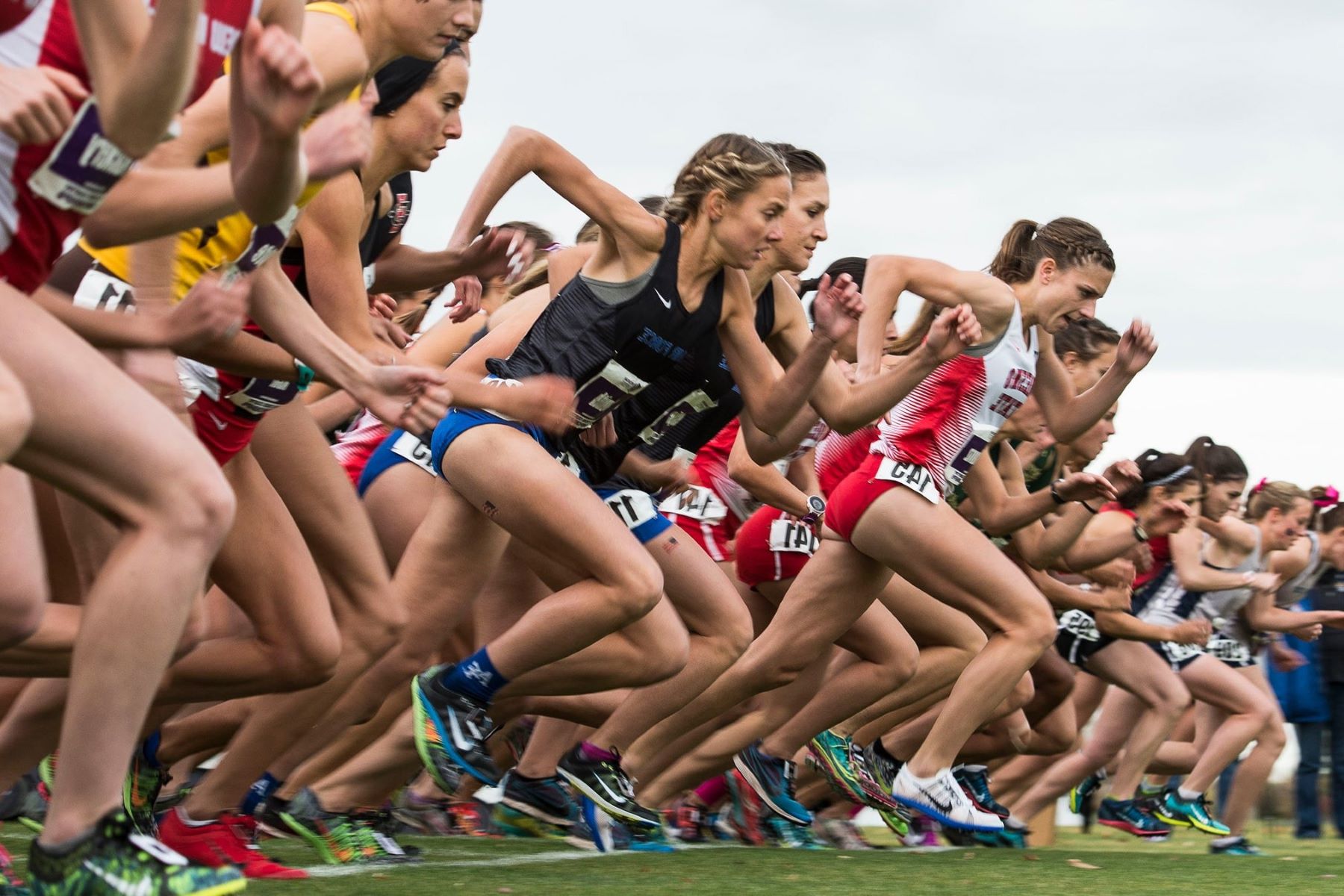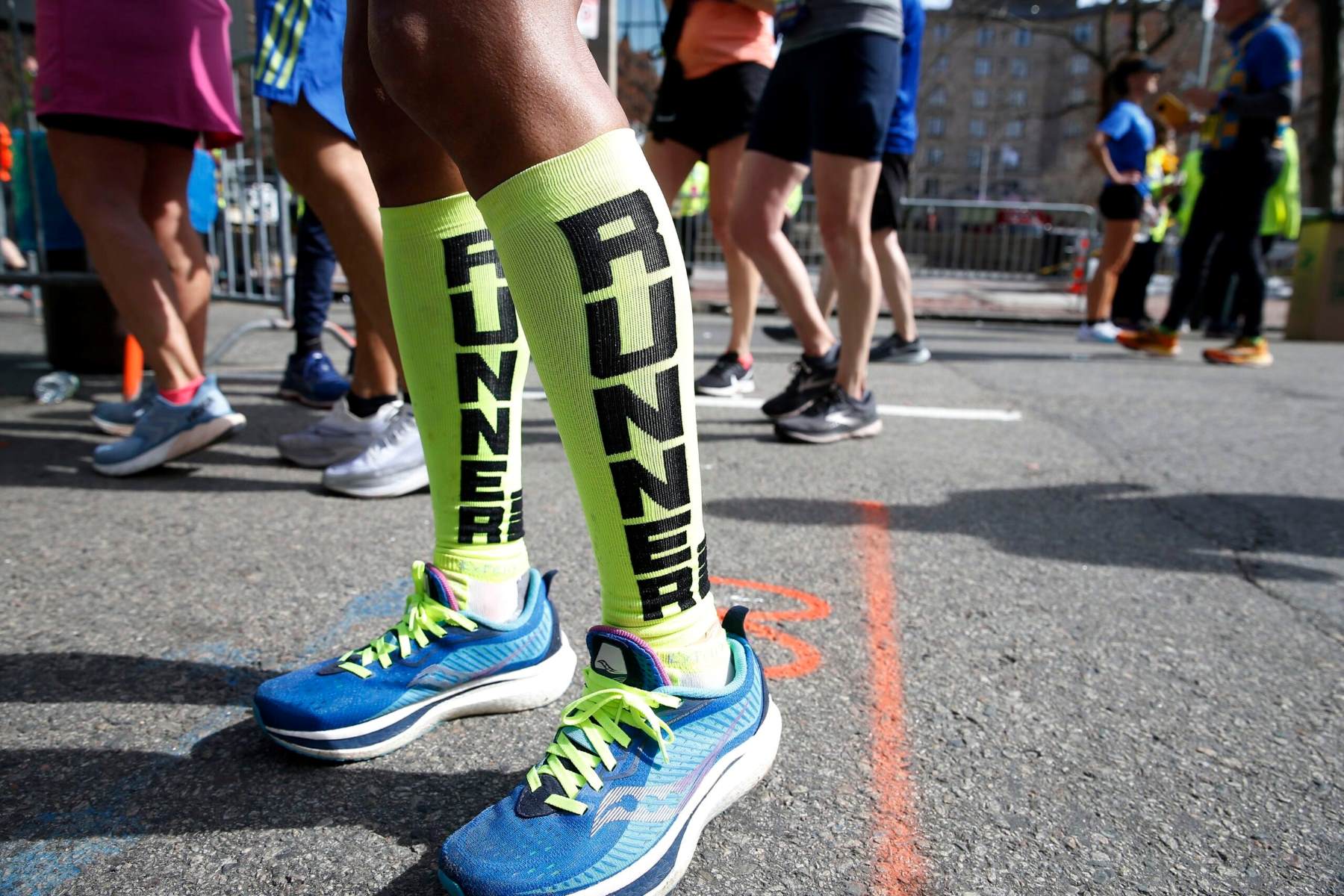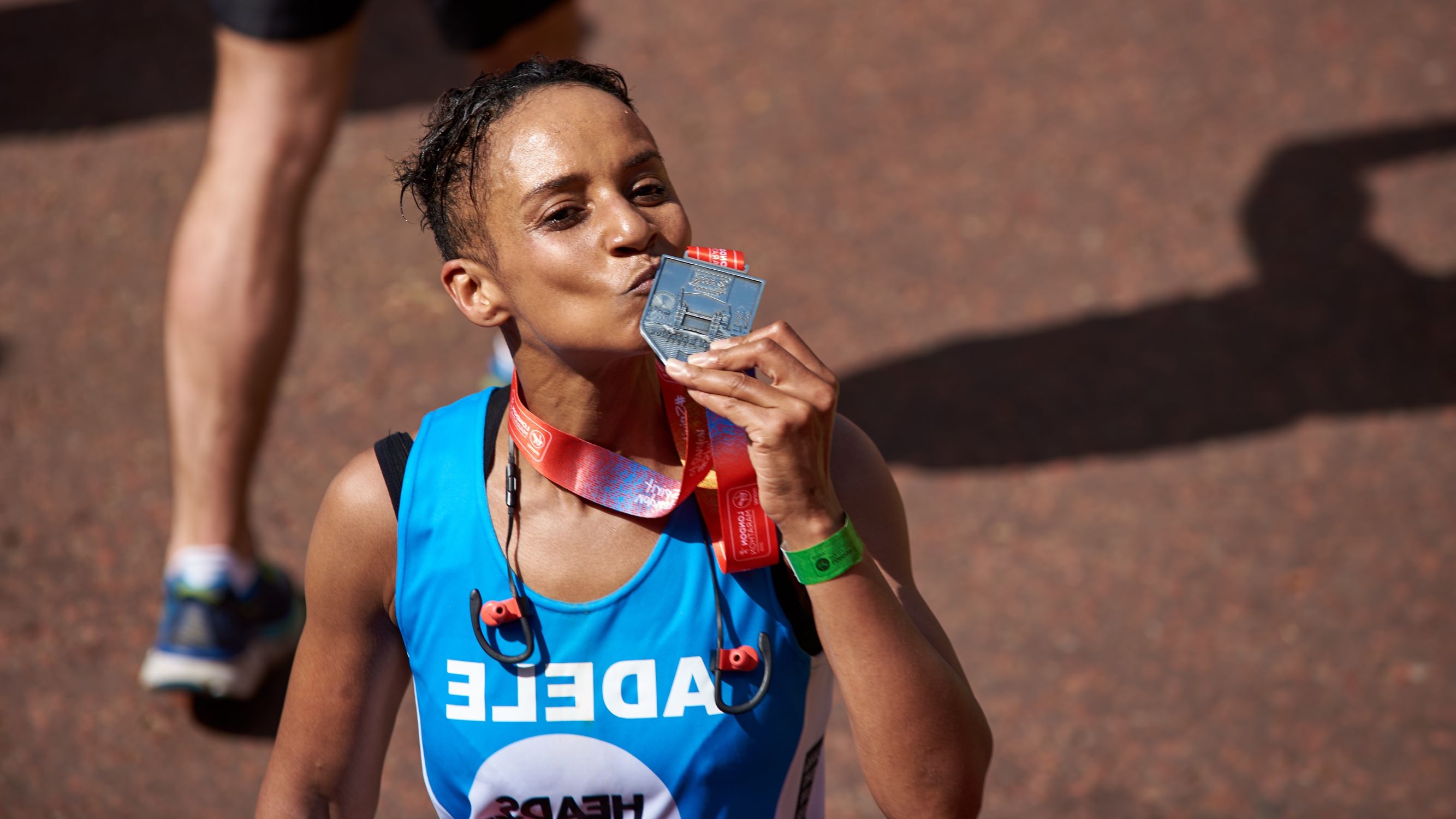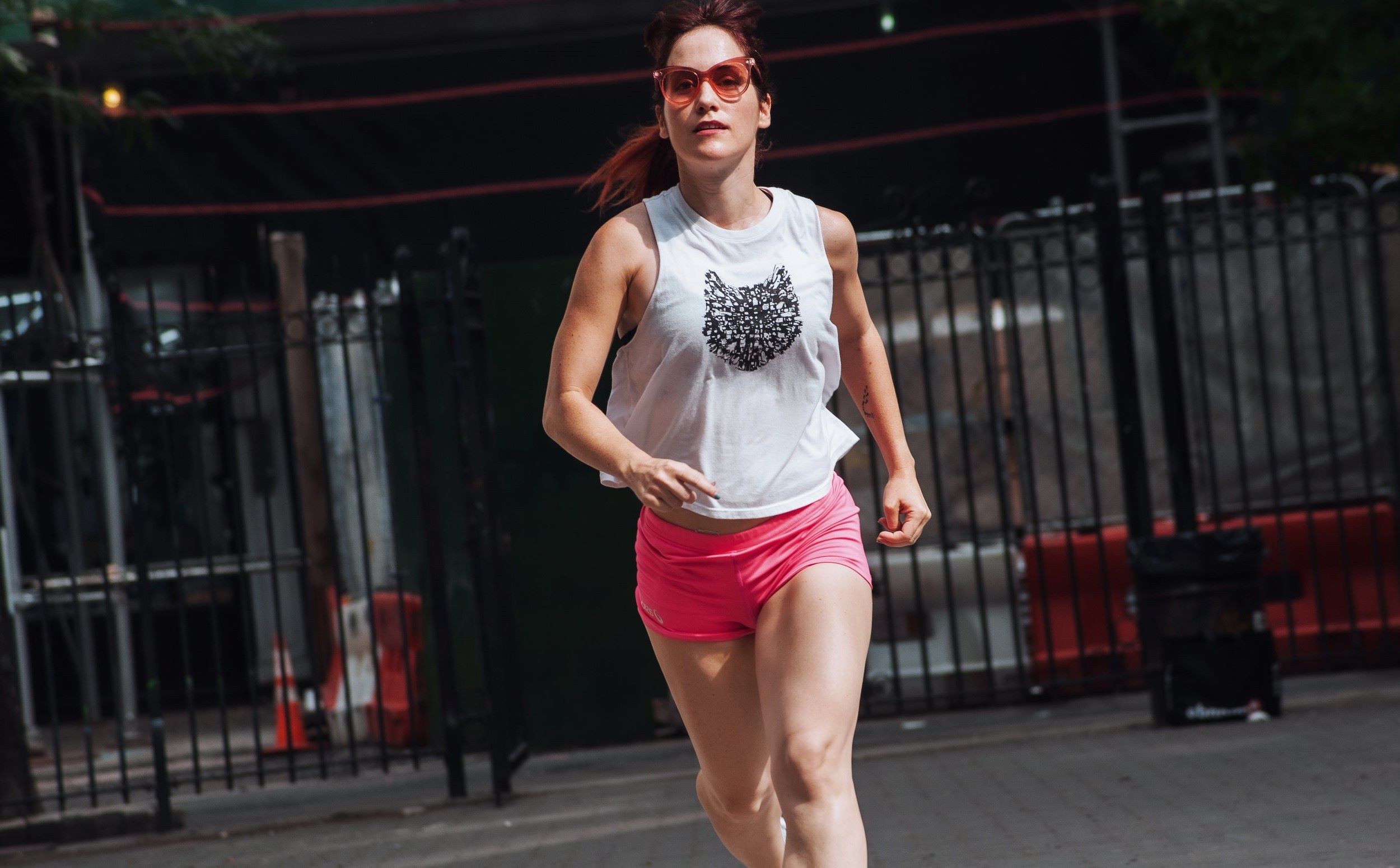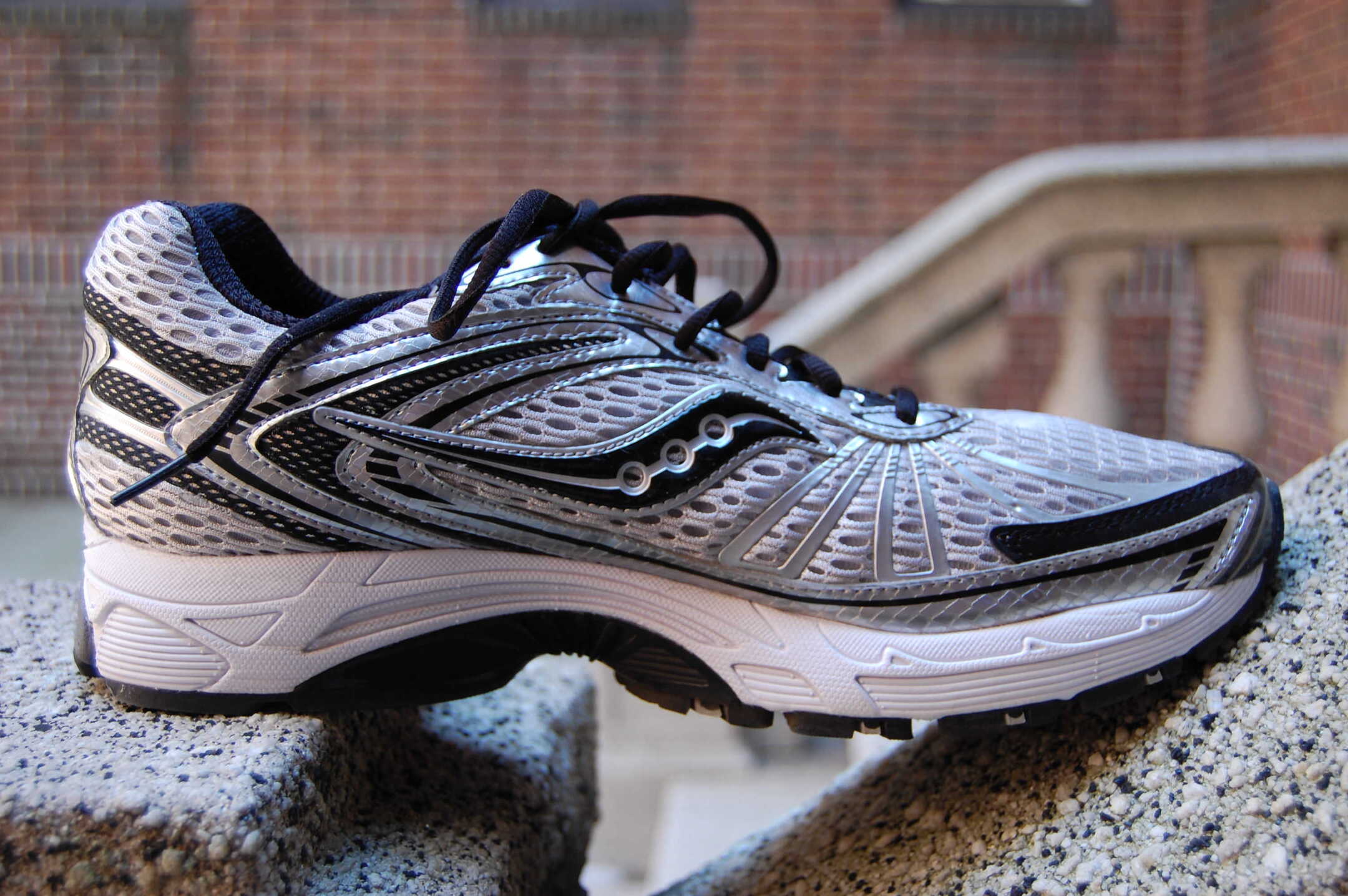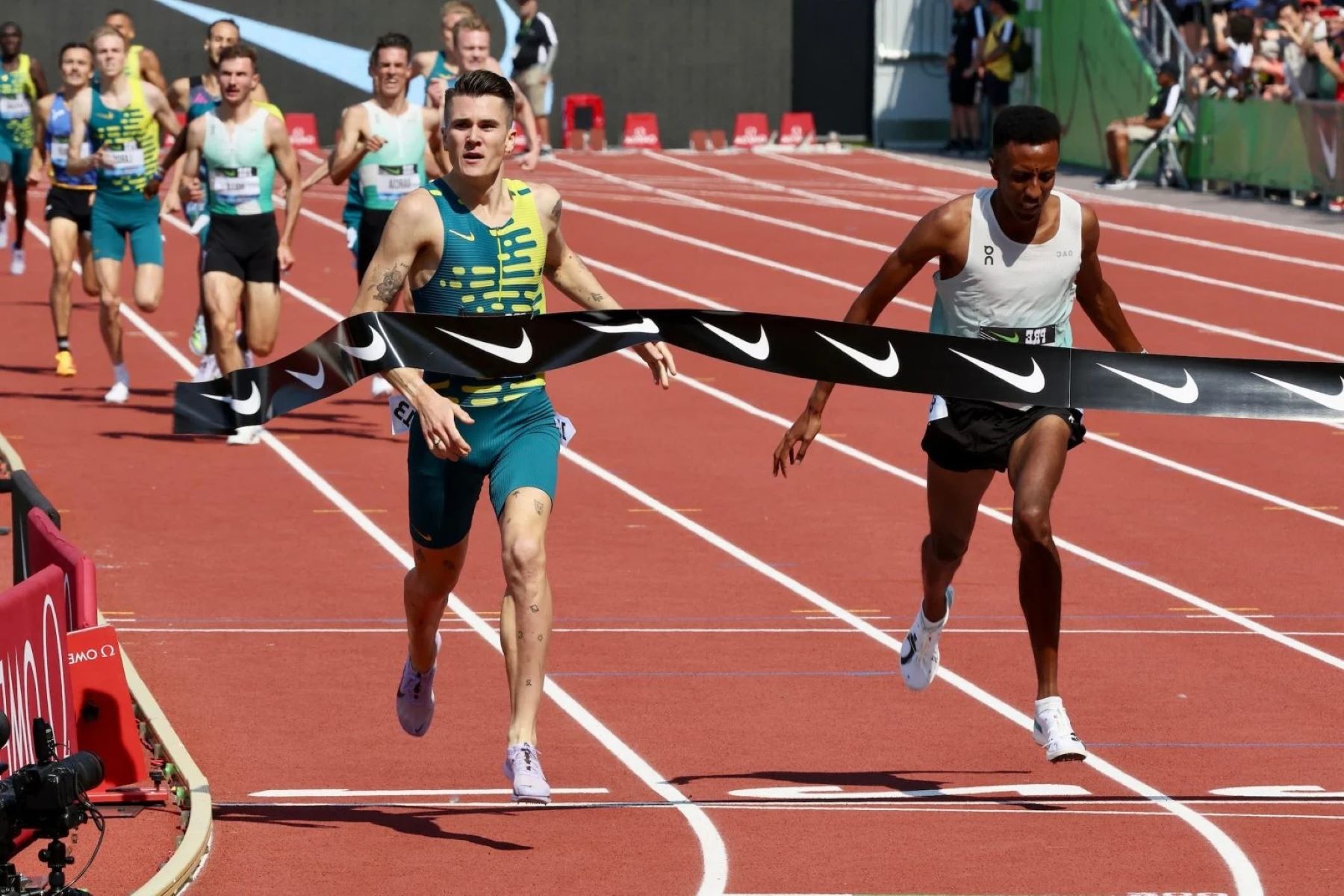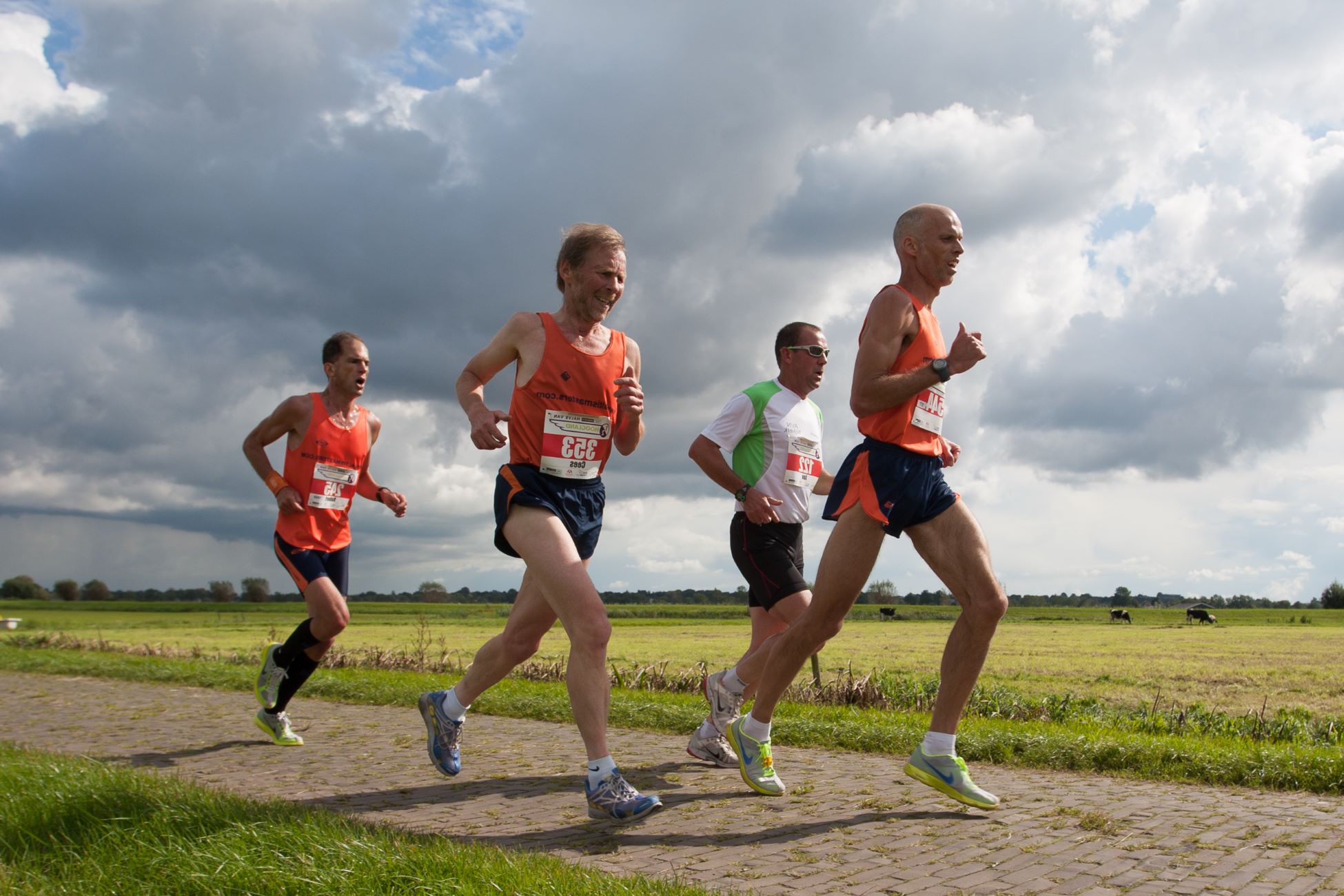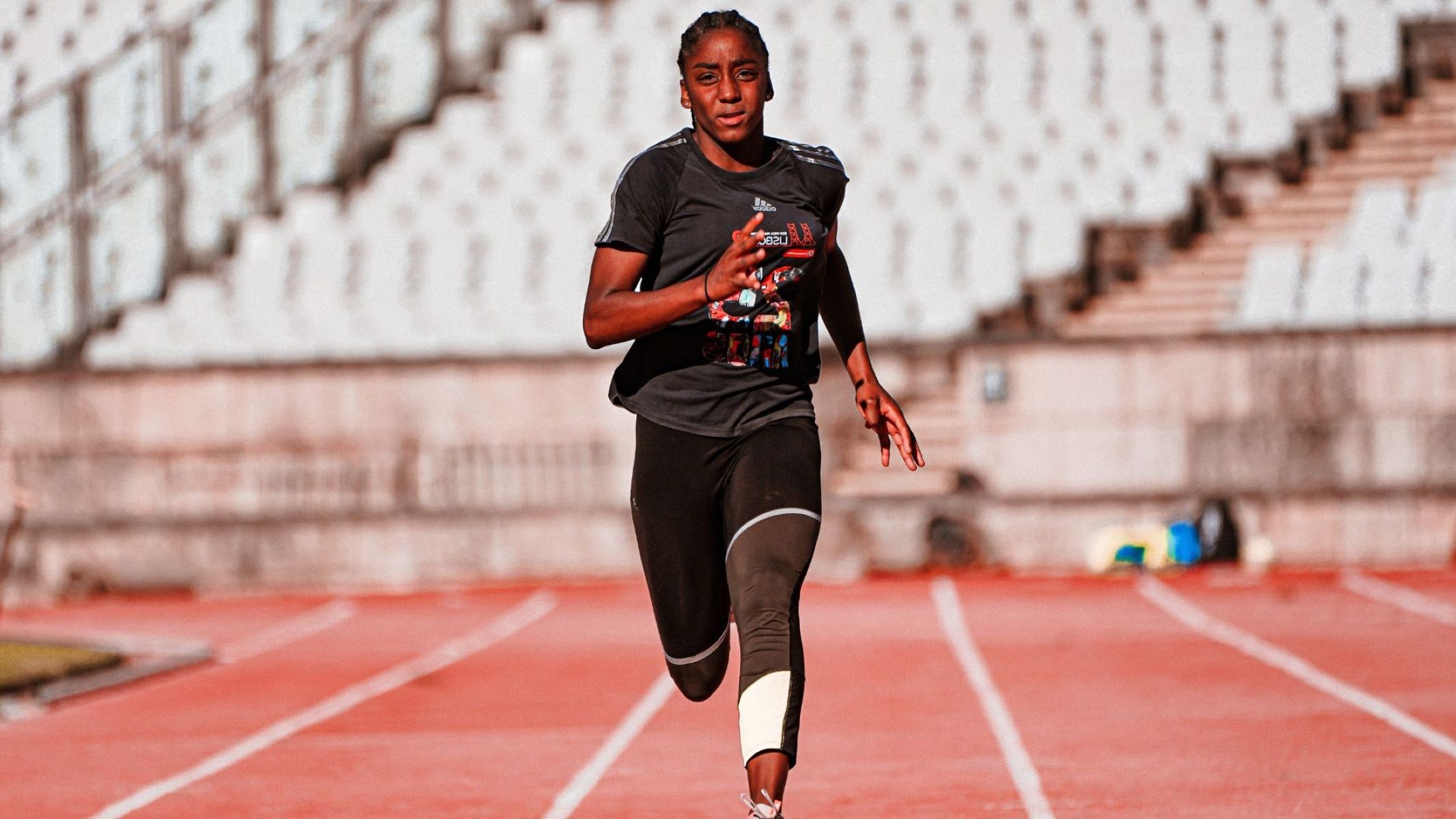Home>Races & Events>Marathon Guide>Breaking Records: The Fastest Marathon Times For Men And Women
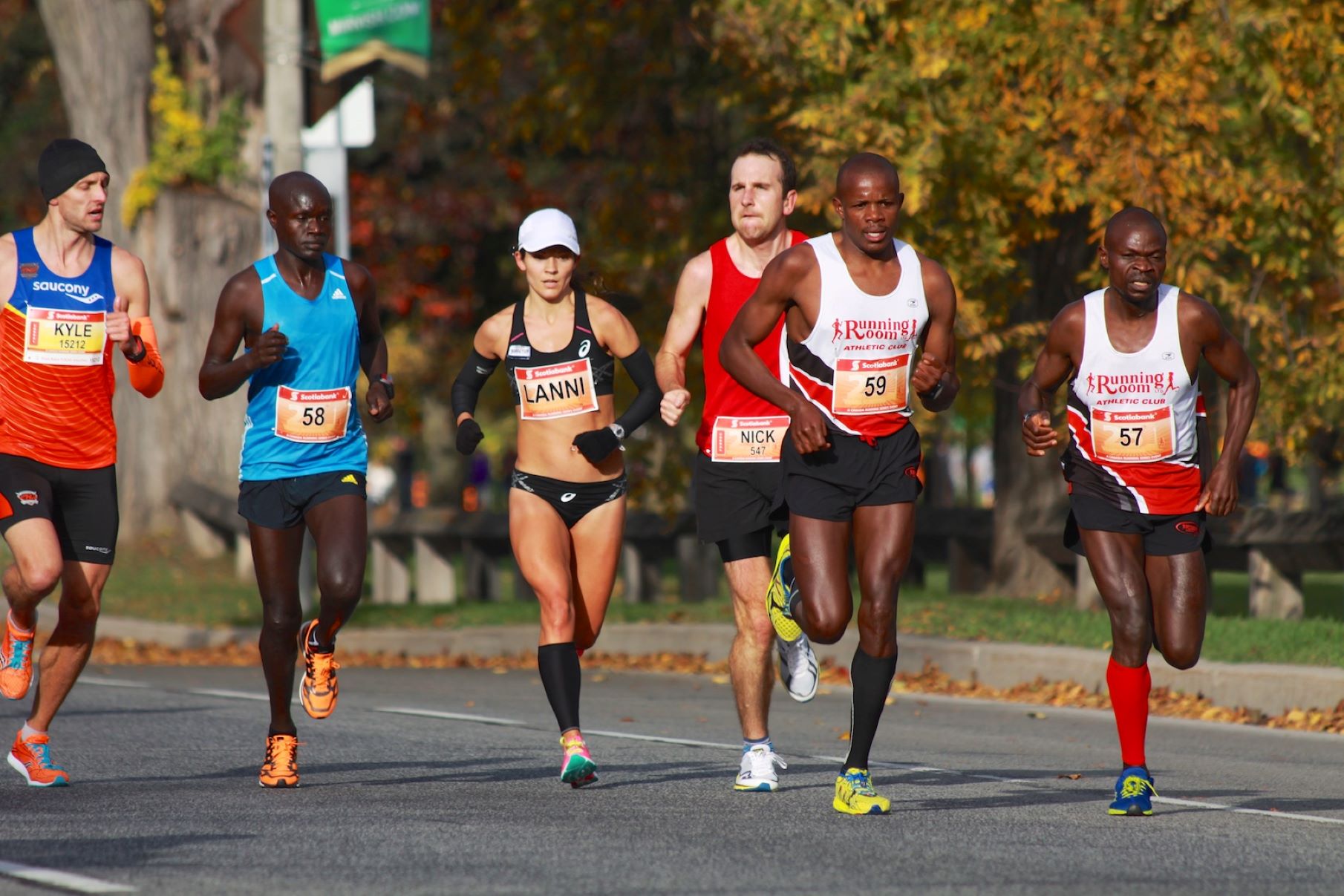

Marathon Guide
Breaking Records: The Fastest Marathon Times For Men And Women
Published: February 20, 2024
Discover the fastest marathon times for men and women in our comprehensive marathon guide. Learn about the records and get inspired to break your own limits.
(Many of the links in this article redirect to a specific reviewed product. Your purchase of these products through affiliate links helps to generate commission for Therunningadvisor.com, at no extra cost. Learn more)
Table of Contents
Introduction
Marathons have long been a testament to human endurance and athleticism, attracting runners from around the world to test their limits over the grueling 26.2-mile distance. The pursuit of faster marathon times has been a driving force in the sport, captivating both athletes and spectators alike. In this article, we will delve into the evolution of marathon running, explore the fastest marathon times for men and women, and examine the various factors that influence marathon performances.
The quest for speed and endurance in marathon running has led to remarkable achievements and breakthroughs in athletic performance. From the ancient origins of the marathon to the modern era of professional racing, the sport has undergone a remarkable transformation, with athletes continually pushing the boundaries of what was once thought possible.
As we explore the fastest marathon times for men and women, we will witness the awe-inspiring feats of elite athletes who have shattered records and redefined the limits of human potential. These remarkable accomplishments serve as a testament to the dedication, perseverance, and unwavering determination of the athletes who have etched their names in the annals of marathon history.
Furthermore, we will delve into the myriad factors that can impact marathon times, including training regimens, race strategies, environmental conditions, and advancements in sports science and technology. By understanding these influences, we can gain valuable insights into the complexities of marathon running and the remarkable performances that continue to captivate and inspire enthusiasts worldwide.
Join us on this exhilarating journey through the world of marathon running, where we will celebrate the triumphs, the challenges, and the enduring spirit of human athleticism. Let's embark on a thrilling exploration of the fastest marathon times for men and women, uncovering the remarkable stories and achievements that have shaped the landscape of this iconic endurance sport.
The Evolution of Marathon Running
The origins of marathon running can be traced back to ancient Greece, where the legendary tale of Pheidippides, a herald of the Athenian army, has become synonymous with the birth of the marathon. According to historical accounts, Pheidippides purportedly ran from the battlefield of Marathon to Athens, a distance of approximately 26 miles, to deliver news of the Greek victory over the Persians. This iconic feat has since been immortalized in the annals of athletic lore, laying the foundation for the enduring legacy of the marathon.
While the ancient roots of marathon running are steeped in myth and legend, the modern evolution of the sport can be attributed to the revival of the Olympic Games in the late 19th century. The marathon made its debut at the inaugural modern Olympics in 1896, with the race commemorating the legendary run of Pheidippides. Spirited by the historical significance of the event, athletes from around the world embraced the challenge of the marathon, igniting a fervent passion for long-distance running.
Over the ensuing decades, marathon running underwent a remarkable transformation, evolving from a symbolic reenactment of ancient lore to a fiercely competitive and globally celebrated athletic pursuit. The establishment of prestigious marathons, such as the Boston Marathon and the New York City Marathon, further propelled the sport into the mainstream, captivating audiences and inspiring legions of aspiring runners.
The evolution of marathon running also witnessed significant advancements in training methodologies, nutrition, and sports science, as athletes and coaches sought to optimize performance and unlock the full potential of human endurance. The development of specialized running shoes, apparel, and equipment, coupled with cutting-edge training regimens, has revolutionized the way athletes prepare for and compete in marathons, leading to unprecedented levels of speed and efficiency.
Moreover, the professionalization of marathon running has elevated the sport to new heights, with elite athletes continually raising the bar for speed and endurance. The pursuit of faster marathon times has become a driving force in the athletic community, spurring intense competition and pushing the boundaries of human performance.
As we reflect on the evolution of marathon running, it becomes evident that the sport has transcended its ancient origins to become a symbol of human tenacity, determination, and unwavering spirit. The marathon stands as a testament to the indomitable will of athletes who have embraced the challenge of conquering 26.2 miles, leaving an indelible mark on the landscape of endurance sports.
The Fastest Marathon Times for Men
In the realm of elite marathon running, the pursuit of faster times has propelled athletes to astonishing feats of speed and endurance. The quest to achieve the fastest marathon times for men has been a relentless endeavor, characterized by remarkable performances that have captivated the global running community. As we delve into the annals of marathon history, we encounter a lineage of extraordinary athletes who have shattered records and redefined the limits of human potential.
At the pinnacle of men's marathon racing stands Eliud Kipchoge, a Kenyan long-distance runner whose name has become synonymous with unparalleled excellence in the sport. Kipchoge etched his name in the annals of athletic history with a groundbreaking performance at the 2018 Berlin Marathon, where he astounded the world by completing the race in a staggering time of 2 hours, 1 minute, and 39 seconds. This awe-inspiring achievement not only shattered the previous world record but also solidified Kipchoge's status as a legendary figure in marathon running.
The remarkable display of athleticism and determination exhibited by Kipchoge exemplifies the relentless pursuit of excellence that defines the world of elite marathon racing. His unparalleled speed and unwavering focus propelled him to transcend the boundaries of human performance, setting a new standard for what was once deemed unattainable.
In addition to Kipchoge's historic feat, other notable athletes have left an indelible mark on the landscape of men's marathon running. Athletes such as Kenenisa Bekele of Ethiopia and Dennis Kipruto Kimetto of Kenya have showcased their exceptional talents, vying for supremacy in the quest for faster marathon times. Bekele's electrifying performance at the 2019 Berlin Marathon, where he narrowly missed breaking Kipchoge's world record, stands as a testament to the fierce competition and unwavering determination that drive athletes to push the boundaries of speed and endurance.
Furthermore, the evolution of training methodologies, advancements in sports science, and the relentless pursuit of innovation have contributed to the continual refinement of men's marathon performances. Athletes and coaches alike have embraced cutting-edge technologies, specialized training regimens, and meticulous race strategies to optimize speed and efficiency, culminating in a relentless pursuit of faster marathon times.
As we celebrate the remarkable achievements of elite male marathon runners, we bear witness to a legacy of unparalleled athleticism, unwavering determination, and the enduring pursuit of excellence. The fastest marathon times for men stand as a testament to the indomitable spirit of athletes who have transcended the limits of human potential, leaving an indelible mark on the storied history of marathon running.
The Fastest Marathon Times for Women
In the realm of elite marathon running, the pursuit of faster times has propelled female athletes to astonishing feats of speed and endurance. The quest to achieve the fastest marathon times for women has been a relentless endeavor, characterized by remarkable performances that have captivated the global running community. As we delve into the annals of marathon history, we encounter a lineage of extraordinary female athletes who have shattered records and redefined the limits of human potential.
Foremost among these remarkable athletes is Brigid Kosgei, a Kenyan long-distance runner whose name has become synonymous with unparalleled excellence in women's marathon racing. Kosgei etched her name in the annals of athletic history with a groundbreaking performance at the 2019 Chicago Marathon, where she astounded the world by completing the race in a staggering time of 2 hours, 14 minutes, and 4 seconds. This awe-inspiring achievement not only shattered the previous world record but also solidified Kosgei's status as a legendary figure in women's marathon running.
The remarkable display of athleticism and determination exhibited by Kosgei exemplifies the relentless pursuit of excellence that defines the world of elite marathon racing. Her unparalleled speed and unwavering focus propelled her to transcend the boundaries of human performance, setting a new standard for what was once deemed unattainable.
In addition to Kosgei's historic feat, other notable athletes have left an indelible mark on the landscape of women's marathon running. Athletes such as Paula Radcliffe of Great Britain and Mary Keitany of Kenya have showcased their exceptional talents, vying for supremacy in the quest for faster marathon times. Radcliffe's iconic performance at the 2003 London Marathon, where she set a world record that stood for 16 years, stands as a testament to the fierce competition and unwavering determination that drive female athletes to push the boundaries of speed and endurance.
Furthermore, the evolution of training methodologies, advancements in sports science, and the relentless pursuit of innovation have contributed to the continual refinement of women's marathon performances. Athletes and coaches alike have embraced cutting-edge technologies, specialized training regimens, and meticulous race strategies to optimize speed and efficiency, culminating in a relentless pursuit of faster marathon times.
As we celebrate the remarkable achievements of elite female marathon runners, we bear witness to a legacy of unparalleled athleticism, unwavering determination, and the enduring pursuit of excellence. The fastest marathon times for women stand as a testament to the indomitable spirit of athletes who have transcended the limits of human potential, leaving an indelible mark on the storied history of marathon running.
Factors Affecting Marathon Times
The performance of marathon runners is influenced by a myriad of factors that can significantly impact their race times. Understanding these variables is crucial for athletes and coaches seeking to optimize training regimens, race strategies, and overall performance. From physiological attributes to environmental conditions, the following factors play a pivotal role in determining marathon times:
-
Training Regimen: The effectiveness of a runner's training program directly impacts their marathon performance. Endurance, speed, and strength training, coupled with proper recovery periods, are essential for building the physical and mental resilience required to sustain peak performance over 26.2 miles.
-
Nutrition and Hydration: Proper fueling and hydration are critical for marathon runners. A well-balanced diet rich in carbohydrates, proteins, and healthy fats, along with adequate hydration, is essential for sustaining energy levels and preventing fatigue during the race.
-
Biomechanics and Running Form: Efficient running mechanics and proper form can enhance a runner's speed and endurance while minimizing the risk of injury. Stride length, cadence, and foot strike patterns are key elements that can impact marathon performance.
-
Mental Toughness and Strategy: The mental fortitude of a runner and their ability to execute race strategies can significantly influence marathon times. Techniques such as pacing, mental visualization, and positive self-talk play a crucial role in maintaining focus and determination throughout the race.
-
Environmental Conditions: Weather conditions, including temperature, humidity, and wind, can profoundly affect marathon performances. Extreme heat or cold, as well as strong headwinds, can pose significant challenges for runners, impacting their overall race times.
-
Course Topography: The elevation profile and terrain of the marathon course can impact race times. Hilly courses require additional exertion, while flat and downhill sections may facilitate faster running speeds.
-
Equipment and Gear: The selection of appropriate running shoes, apparel, and gear can influence a runner's comfort, performance, and overall race experience. Proper footwear and attire tailored to the specific race conditions are essential for optimizing marathon times.
-
Recovery and Rest: Adequate rest and recovery periods are vital for allowing the body to adapt to the demands of training and racing. Overtraining and inadequate recovery can lead to fatigue and diminished performance on race day.
By comprehensively addressing these factors, marathon runners can optimize their preparation and performance, ultimately striving for faster race times and achieving their athletic goals. The interplay of these variables underscores the multifaceted nature of marathon running, where meticulous attention to detail and holistic preparation are essential for success on the road to the finish line.
Read more: 99-Year-Old Grandma Breaks 100-Meter Record
Conclusion
In the realm of marathon running, the pursuit of faster times has been a driving force, spurring athletes to push the boundaries of human potential and redefine the limits of speed and endurance. From the ancient origins of the marathon to the modern era of professional racing, the sport has undergone a remarkable evolution, captivating audiences and inspiring legions of runners worldwide.
The fastest marathon times for both men and women stand as a testament to the indomitable spirit of athletes who have transcended the boundaries of what was once deemed unattainable. Elite runners such as Eliud Kipchoge, Brigid Kosgei, and a lineage of remarkable athletes have shattered records and etched their names in the annals of athletic history, showcasing unparalleled athleticism, unwavering determination, and the enduring pursuit of excellence.
As we celebrate the remarkable achievements of these elite athletes, it becomes evident that marathon running is not merely a test of physical prowess, but a testament to the resilience of the human spirit. The relentless pursuit of faster marathon times has propelled the sport to new heights, driving innovation, and inspiring a new generation of runners to embrace the challenge of conquering 26.2 miles.
Furthermore, the myriad factors that influence marathon performances, from training regimens and nutrition to environmental conditions and mental toughness, underscore the multifaceted nature of the sport. Athletes and coaches alike continue to refine their approaches, leveraging advancements in sports science and technology to optimize performance and unlock the full potential of human endurance.
The evolution of marathon running has transcended its ancient origins to become a symbol of human tenacity, determination, and unwavering spirit. The marathon stands as a testament to the indomitable will of athletes who have embraced the challenge of conquering 26.2 miles, leaving an indelible mark on the landscape of endurance sports.
As we look to the future, the pursuit of faster marathon times will undoubtedly continue to captivate and inspire, driving athletes to reach new heights of speed and endurance. The legacy of marathon running is one of triumph, perseverance, and the unyielding pursuit of excellence, serving as a testament to the enduring spirit of human athleticism.

